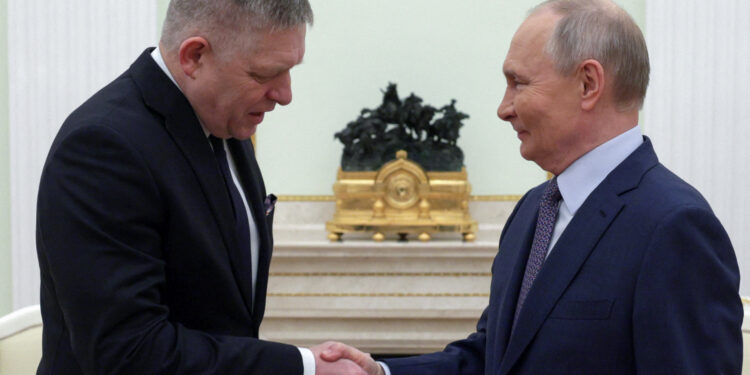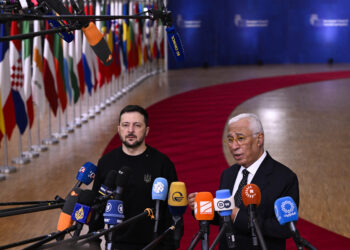Brussels – Slovak Prime Minister Robert Fico continues to make waves. Or rather, to make people talk. His closeness to Russian President Vladimir Putin does not please either Ukraine or its Western allies, and the Slovak leader’s offer to the Kremlin’s tenant to host peace talks in Bratislava is bound to make more than a few noses twitch in both Kyiv and Brussels. Meanwhile, Moscow delivers barbs at Paris, whose conduct has been described as “ambiguous,” while fatigue against the war is increasing across the Old Continent.
Fico’s offer
The Russian president yesterday (Dec. 26) said that the Slovak premier had put on the table a proposal to mediate talks to end hostilities that have been ongoing in Ukraine for nearly three years now (if one does not count the 2014 annexation of Crimea). Speaking on national television, Putin said that Slovak authorities “would be happy to provide their country as a platform for negotiations,” adding that Moscow “is not opposed” to the idea “since Slovakia has such a neutral position” and stressing that “for us, it is an acceptable alternative” to mediation by the United States or other European partners of Kyiv.
However, the neutrality the “czar” praises should be interpreted as proximity to Russia’s positions (and distance from those of Ukraine), which the EU harshly criticizes along with the Hungarian government led by Viktor Orbán. The discussion between Putin and Fico took place during the latter’s “working” visit to Moscow on Dec. 22, which the Slovak government described as a last-ditch effort to save the Russian gas supply to Bratislava in response to Kyiv’s unwillingness to renew contracts expiring at the end of the year.
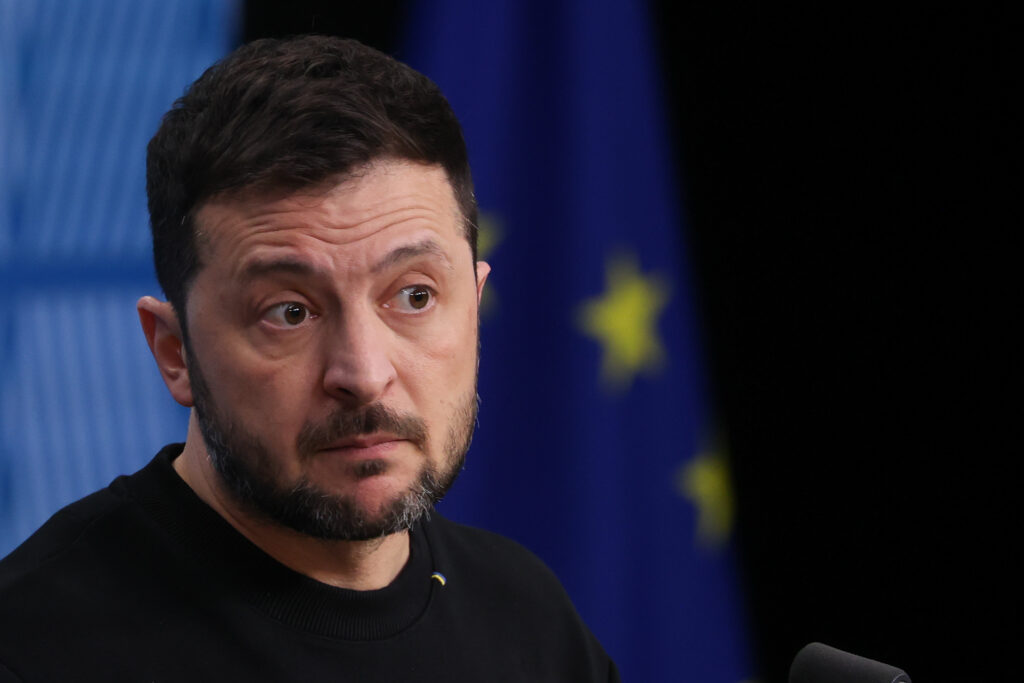
For days, the issue has been at the center of a heated confrontation between Fico and Ukrainian President Volodymyr Zelensky, as seen at the last European Council on Dec. 19: Slovakia would still like to be able to count on the supply of cheap methane from the Russian Federation, but Ukraine – whose territory is crossed by pipelines carrying gas to Europe – has categorically refused to allow Gazprom to make money, thereby financing the Kremlin’s war of aggression. The Slovak premier reiterated his opposition to Kyiv’s membership in NATO, having already cut off military aid to the Ukrainian resistance.
Western fatigue
For some time now, there has been growing insistence on the need to start peace talks between Russia and Ukraine because the sentiment among Western chancelleries – which officially continue to say they will support Kyiv “for as long as it takes” – is that a military solution to the conflict is not achievable and that the only way out is a political one.
Zelensky himself recently admitted, for the first time since the invasion began in February 2022, that the Ukrainian army will not be able to recover the Russian-occupied territories on the battlefield but that it could negotiate their return through diplomatic means.
A recent YouGov poll showed that support for Ukrainian resistance “to the bitter end” has also declined sharply in public opinion in several EU member states, from Italy to Denmark and Spain to Sweden.
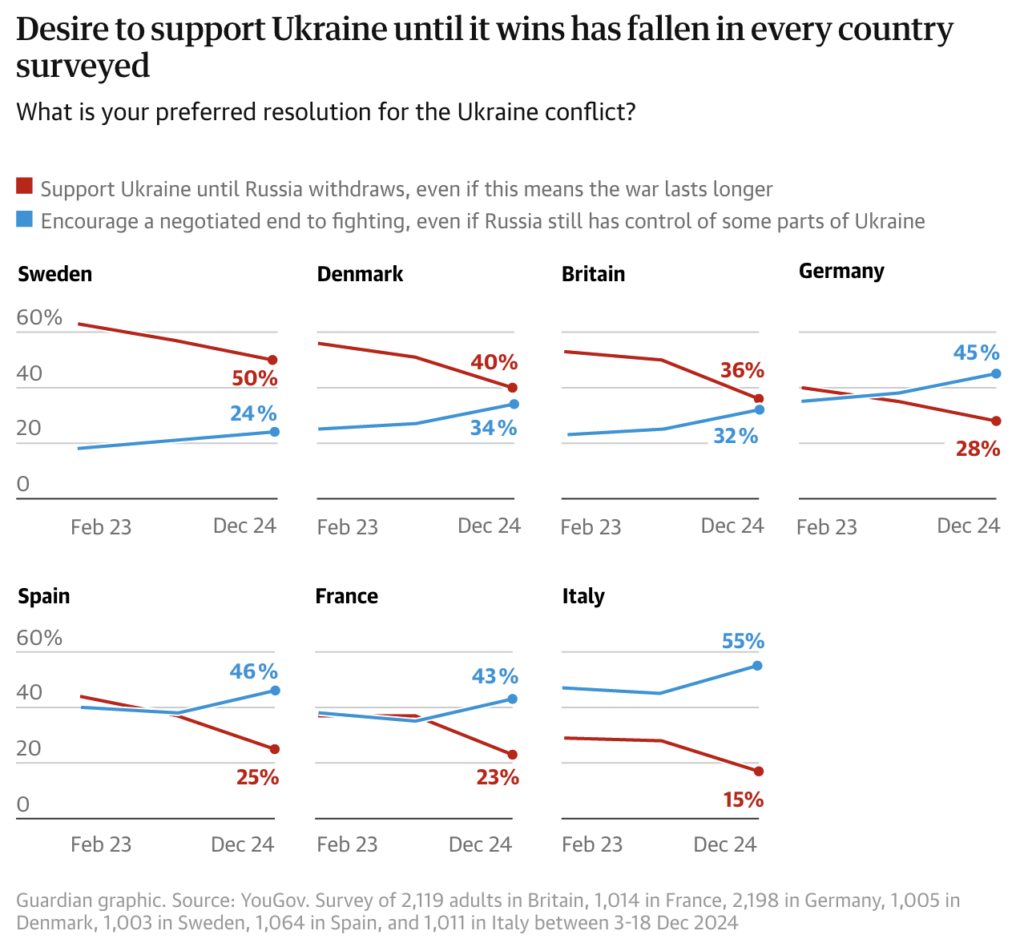
Lavrov’s accusations
Moreover, Russian Foreign Minister Sergei Lavrov also yesterday revealed that Paris had made a proposal for a negotiating framework to Moscow without apparently involving Kyiv. “Several times, through closed channels, our French colleagues contacted us,” Putin’s right-hand man said, “By the way, without Ukraine.”
More importantly, Lavrov criticized France’s “ambiguous” approach, specifically targeting the initiative that President Emmanuel Macron and Polish Prime Minister Donald Tusk are reportedly talking about ensuring compliance with a possible ceasefire in Ukraine. The heart of the French and Polish idea is reportedly the stationing of several tens of thousands of European military personnel along the front line (whatever that will be) as peacekeepers to prevent Russia from attacking the former Soviet republic again.
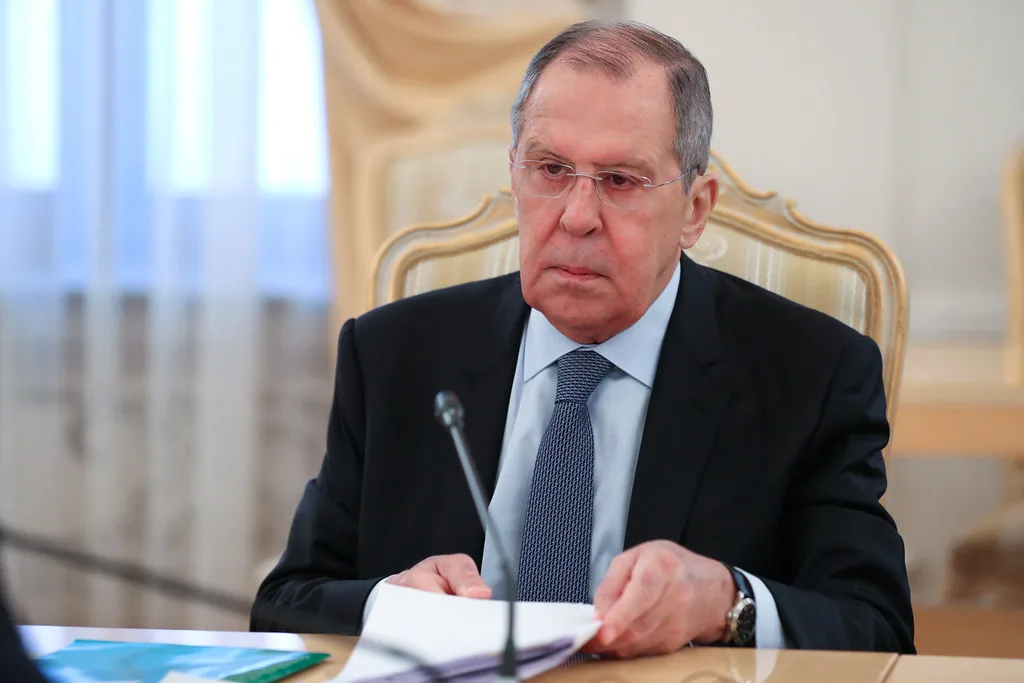
The French response was swift: French diplomacy stressed that the responsibility for ending the war lies exclusively with Russia and that it is possible to conclude any peace agreement only under conditions set by Kyiv. “The Russian authorities are used to making intemperate statements designed to manipulate a war of aggression for which they bear full responsibility. If Russia wants peace, it must put an end to the war,” is the official line from Paris, which adds that “Ukraine has proposed a peace formula that France supports.” The reference is to the 10-point plan presented by Zelensky at the G20 summit in November 2022.
English version by the Translation Service of Withub